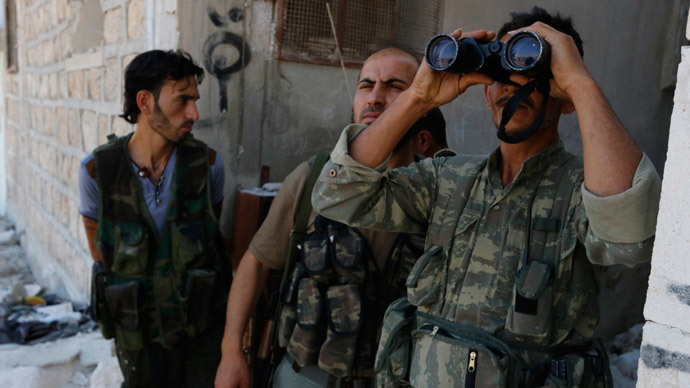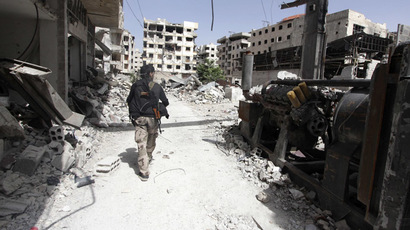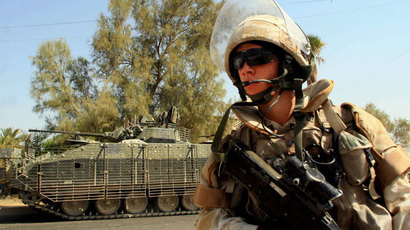London must stop Britons joining Syria ‘onslaught’ – Syrian FM

Britain's policy towards Syria has been branded “stupid” by Damascus’s deputy foreign minister, Faisal Mekdad. The minister said that it is London’s own duty to prevent Britons from going to the Arab country and kill or be killed in the “onslaught.”
The British government should work with him to combat terrorism, and should apologize for supporting rebels who are fighting to overthrow President Bashar Assad, Mekdad told the Guardian newspaper.
He added that it was PM David Cameron’s responsibility to stop Britons traveling to Syria to fight.
“We regret that British people are coming here to be killed and to kill Syrians,” he said. “But we believe it is the responsibility of the British government to stop such an onslaught.”
The UK government fears that young Britons going to Syria will return to the UK radicalized, and may carry out terrorist attacks on home soil.
Last month, Cameron said that foreign fighters in ISIS posed “the biggest threat” to UK national security.
Mashudur Choudhury became the first British citizen to be charged with a terror offence in connection with fighting in Syria. He was found guilty in May of planning to join a terror training camp in the country.
Interviewed in his Damascus office, Mekdad explained his growing confidence that the conflict, which has cost an estimated 170,000 lives since 2011, is going the Syrian government’s way.
“The British government is extremist in its views on Syria and they are still thinking and dreaming that their agents, the Muslim Brotherhood and the other takfiris (violent jihadis) can make the change they want.

“Why should I be diplomatic if [British Foreign Secretary William] Hague and Cameron are not dealing with us diplomatically? We don't have to be. And developments have proven that we are correct and they are stupid. They have to admit that they have failed.”
Mekdad used the interview to praise British MPs for rejecting military action against Syria following the August 2013 chemical weapons attacks that killed around 1,300 people in opposition-held zones. The Damascus government has always denied responsibility for the chemical attack.
“The British parliament was more advanced in its analysis than its government which wanted to commit another aggression against Syria after the one that destroyed Iraq,” Mekdad said.
The deputy foreign minister also made reference to a recent BBC Newsnight exposure of a 2012 plan by the UK Defense Ministry to train a 100,000-strong moderate rebel force in Turkey and Jordan to fight Assad's forces.
The rebels would have been trained by an international coalition armed with high-quality weaponry, and would have marched on Damascus with air cover provided by Britain and its allies.
“We knew that the UK was deeply involved in all the attacks and crimes that were committed in Syria,” Mekdad told the paper. “We are sure that there are more revelations which will show how deep was the involvement of the UK government.”
Syria’s first multi-candidate election in decades was held in June, which saw Assad returned to office with 88.7 percent of the vote.
The conflict in Syria began after protests in 2011 against Assad’s government, which later descended into a civil war. The death toll is thought to have surpassed 170,000, while the number of refugees has swelled to 2.8 million.
Nearly a year since the poisonous chemical attack in Ghouta, near Damascus, the last of Syria's known chemical arsenal is believed to have been removed from the country.














